Qantas in trading halt as 6000 jobs axed
Sacked Qantas workers will have no certainty on government assistance for at least another month as 6,000 cuts were dubbed as “gut-wrenching”. Unions have vowed to fight for their jobs.

Business
Don't miss out on the headlines from Business. Followed categories will be added to My News.
In a year where Qantas was meant to be celebrating its centenary, the flying kangaroo has been forced to cut 6000 jobs including ground and cabin crew staff as part of its major three-year COVID-19 recovery plan.
Sacked Qantas workers will have no certainty on government assistance for at least another month as Deputy Prime Minister Michael McCormack describes the 6,000 job losses as a “gut-wrenching” and “very dark” day for the industry.
Mr McMCormack the government would “see what assistance measures” will be needed to help the aviation industry and the whole economy.
“We will do, as a Government, all we can to obviously provide assistance for not only (Qantas workers) but, indeed, for the aviation sector as a whole going forward,” he said.
“Of course, Josh Frydenberg, the Treasurer, Mathias Cormann, the Finance Minister, will stand on July 23 to outline the economic plan going forward, because, of course, JobKeeper is scheduled to finish ... at the end of September.”
Mr McCormack said it would be a difficult time for employees and their families, but acknowledged the decision taken by Qantas was “in the best interests of their company going forward”.
“That said, it is very, very hard,” he said.
“These members of the Qantas group who will lose their jobs are like a
family ... and for them, it is going to be so, so difficult, not knowing their futures.
“I understand, I have absolute empathy for them.
“I know what it’s like to lose a job and to not know what the future holds.”
Mr McCormack said it was “fortunate” the Qantas employees were “true professionals”.
“The good thing for them is that they have been very, very good at their jobs and hopefully there will be other jobs for them in the future, perhaps with Qantas as the sector rebounds,” he said.
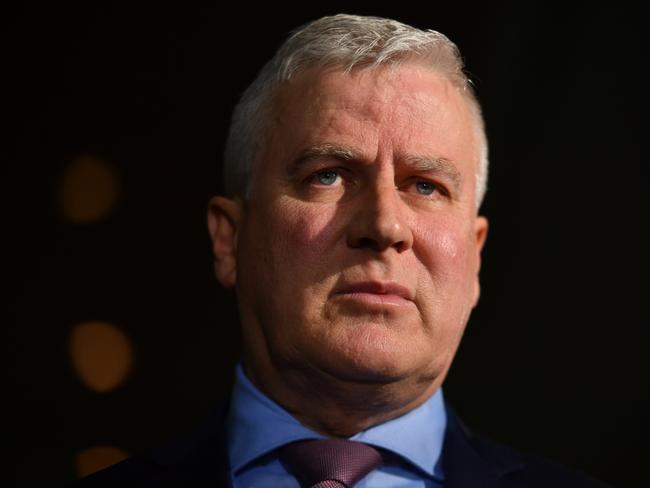
Australian Services Union Assistant National Secretary Linda White today urged Qantas management to reverse its decision on job cuts and for the Federal Government to respond with a significant job saving package for the industry.
“This announcement by Qantas is premature and we’re calling on Alan Joyce to engage with the Federal Government on an Aviation Keeper package to protect jobs,” Ms White said.
“It is time the Federal Government put aside its aversion to targeted industry assistance and took some responsibility for shielding the aviation industry from mass job cuts.
“The country will bounce back and Qantas, with one of the best balance sheets of any airline in the world, will be well placed when the health crisis eases and the economy picks up.
“But cutting jobs and capacity now will only hamstring the industry and economy – Qantas is shooting itself in the foot.
“If Qantas does not reverse its decision, we will fight for these jobs to be retained.”
WHERE THE CUTS WILL COME FROM
Those affected include A380 pilots and crews which Qantas is talking to the federal government about supporting them with a type of Jobkeeper allowance.
Around 100 aircraft will also be grounded for up to 12 months including most of its international fleet.
Another 15,000 workers will remain stood down for some time, with just over half expected to return to work by the end of the year.
Prime Minister Scott Morrison has described the move as “heartbreaking”.
“I extend my, my deepest, my deepest regrets about what is had to be announced today,” he said.
“The thing about Qantas employees, is they’re passionate about the company that they work for and the business they’re in and they understand that ultimately, that when you can’t put planes in the air, then the business can’t make money.
“And I know that they will understand that but it won’t make it any easier.
“And so I had a very good discussion last night with Alan Joyce, as he referred to today.
“And we’ll certainly be continuing to do everything we currently are doing, [to support] other parts of the aviation sector.”
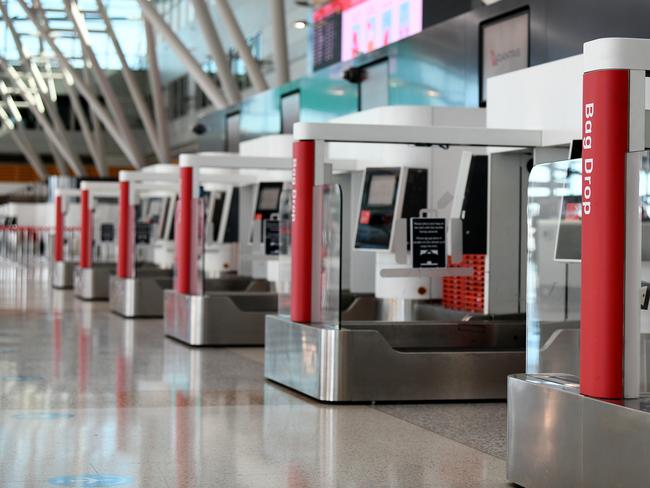
The job cuts affect Qantas and its budget airline Jetstar:
•Non-operational –at least 1,450 job losses, mainly in corporate roles, due to less flying activity.
•Ground operations –at least 1,500 job losses across airports, baggage handling, fleet presentation and ramp operations due to less flying activity.
•Cabin crew –at least 1,050 job losses due to early retirement of the 747s and less flying activity. A further 6,900 cabin crew will be on stand down from July 2020 onwards.
•Engineering –at least 630 job losses due to 747 retirement, less flying activity (particularlyof the wide-body fleet) and redistribution of work from Jetstar’s Newcastle base to make better use of existing maintenance capacity in Melbourne.
•Pilots –at least 220 job losses mostly due to early retirement of the 747s. A further 2,900 pilots will be on stand down from July 2020 onward
The airline is also immediately retiring its remaining 747s, six months ahead of schedule.
JOYCE: ‘THE BIGGEST CRISIS WE’VE FACED’
Qantas Group CEO Alan Joyce said coronavirus was the worst crisis the aviation industry had ever faced.
“Right now all airlines are in the middle of the biggest crisis our industry has ever faced,” Mr Joyce said.
“Airline revenues have collapsed, entire fleets have been grounded. And the world’s biggest carriers are taking extreme action just to survive.”
Mr Joyce said the airline had entered COVID-19 in a “better position than most airlines”.
“We have to position ourselves for several years where revenue will be much lower,” he said.
“And that means becoming a smaller airline in the short term.
“Most airlines will have to restructure in order to survive, which also means they’ll come through this leaner and more competitive.”
Mr Joyce said the job losses were “confronting”.
“So is the fact thousands more of our people on stand down will face a long interruption to their airline careers until this work returns,” he said.
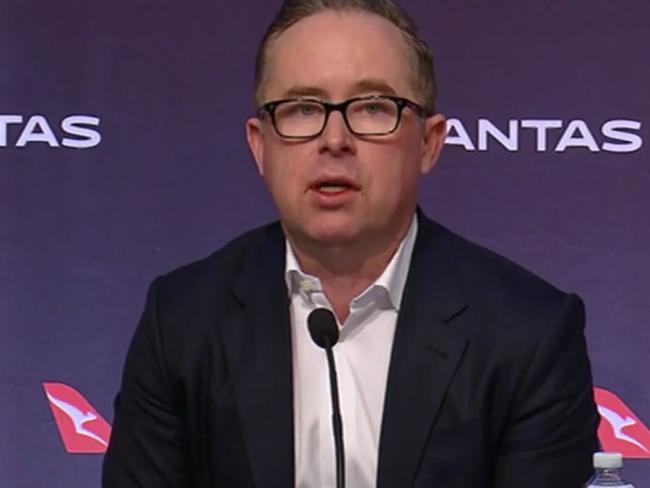
“What makes this even harder is that right before this crisis hit, we were actively recruiting pilots, cabin crew and ground staff.
“We’re now facing a sudden reversal of fortune that is no one’s fault, but is very hard to accept.”
Qantas Chief Financial Officer Vanessa Hudson said the redundancies would initially be voluntary.
“It will be a combination of cabin crew, engineering, ground services teams and corporate teams,” she said.
“It will be felt right across all work groups at Qantas.”
Qantas has also announced it will undertake an equity raising plan which is expected to raise up to $1.9 billion.
Mr Joyce said they had to make some “painful decisions”, but this was the start of a new centenary where they had to think of their future.
AIRBNB BOSS’S SHOCK PREDICTION FOR TRAVEL
The CEO of Airbnb has claimed that “travel as we knew it is over – and it’s never coming back” due to the coronavirus pandemic.
Brian Chesky, who co-founded the holiday rental site in 2008, said there will be a “redistribution of where people travel … instead of to only a few cities, to thousands of local communities”.
Speaking during a TV interview in the US, Mr Chesky said, “People don’t want to get on aeroplanes … they don’t want to go to cities, they don’t want to cross borders.
“What they are willing to do is get in a car and drive a couple of hundred miles to a small community where they are willing to stay in a house.
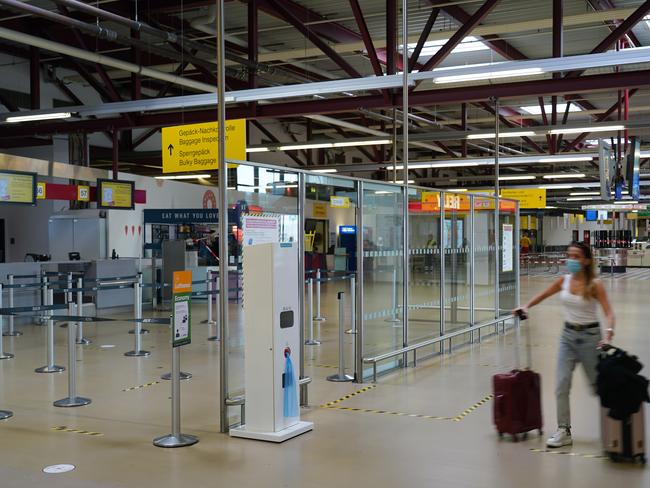
“People are yearning for a connection. They want to be connected to each other, to communities, they want to get outside.”
Mr Chesky also revealed how the pandemic affected his business, that “we spent 12 years building [it] and lost almost all of it in a matter of four to six weeks”.
The Airbnb boss’ comments come as stocks went down sharply on Wall Street on Wednesday (local time) as data showing new coronavirus cases in the US have climbed to the highest level in two months rattles investors’ optimism for a relatively quick economic turnaround.
But Mr Chesky remained optimistic about the US market saying “it’s resilient”, pointing out that his company has “more hosts now than before the start of the COVID-19 crisis” and had the same volume of bookings in the US in May and early June as the year before “without any marketing”.
But he stressed that while travel will come back, “it’s going to take a lot longer than what we thought” and that it’s “going to be different”.
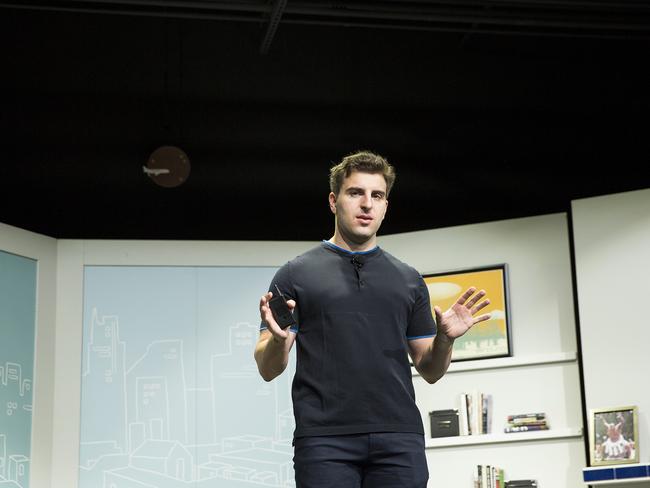
Originally published as Qantas in trading halt as 6000 jobs axed


